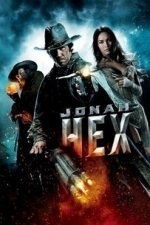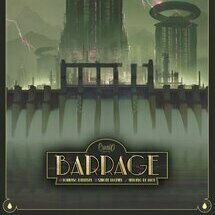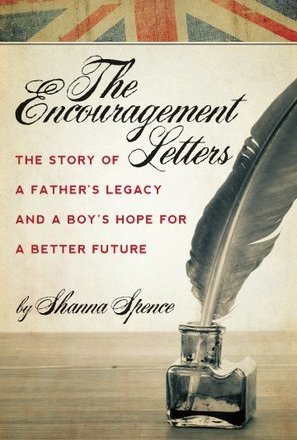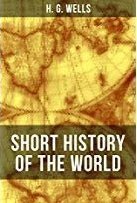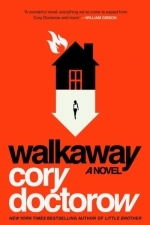
Walkaway: A Novel
Book
From New York Times bestselling author Cory Doctorow, an epic tale of revolution, love,...
Science fiction fiction
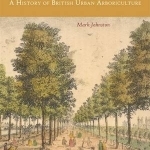
Trees in Towns and Cities: A History of British Urban Arboriculture
Book
This is the first book on the history of trees in Britain's towns and cities and the people who have...
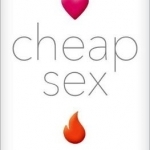
Cheap Sex: The Transformation of Men, Marriage, and Monogamy
Book
Sex is cheap. Coupled sexual activity has become more widely available than ever. Cheap sex has been...
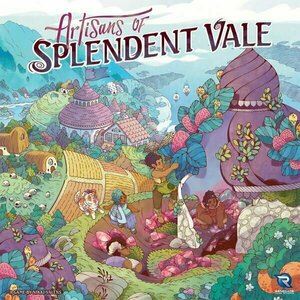
Artisans of Splendent Vale
Tabletop Game
Long ago, a splendid streak of crimson fell from the sky and carved the valley from the earth. The...
Gareth von Kallenbach (980 KP) rated Jonah Hex (2010) in Movies
Aug 8, 2019
The film mixes the lore of the Old West, vaguely historical aspects of post-Civil War America, and weapons from a very steampunk-the-Industrial-Revolution. The resulting environment is more explosive than the dynamite that is apparently everywhere.
Filled with ideas that trail off into the dust, it quickly becomes clear that this film was finished in a rush. There are too many characters that lack compelling, if any, back-story. The tale that remains is disjointed and drags. All the buzz about the leading lady, Lilah (Megan Fox), was over minimal participation in the film. Sure she looks nice, and wears a steampunky outfit while performing a few quick stunts, but the resulting character (and poor acting) is not worth the media hype.
The few well-played and interesting characters, aside from the brash but tends-to-grow-on-you Jonah, all have bit parts. Among the best performances are Hex’s best friend, Jeb Turnbull (Jeffery Dean Morgan), one of President Grant’s cohorts, Lieutenant Grass (Will Arnett), and the store owner and gun-runner, Smith (Lance Riddick). Most surprising is that the frequent scenes with screen veteran John Malkovich, as lead bad guy Quentin Turnbull, result in a drab uninterested character that completely fails to engage the audience. It is almost a shockingly poor performance for Malkovich.
But hey, the melding of comic book history with actual film shots in the beginning was some of the best work out there for explaining a complex and multi-media adapted back-story. Additionally, the bold uses of color, costume, sets and scenery made the film visually interesting to watch. But with a budget as big as this film had it is hard to accept there wasn’t a better story to tell.
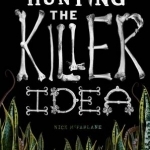
Hunting the Killer Idea
Book
Killer Ideas. They re out there. Wild, unpredictable and dangerous. So powerful they can stop a...
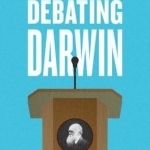
Debating Darwin
Robert J. Richards and Michael Ruse
Book
Charles Darwin is easily the most famous scientist of the modern age, and his theory of evolution is...
Heather Cranmer (2721 KP) rated The Encouragement Letters in Books
Oct 3, 2018
I found the pacing to be perfect in The Encouragement Letters. This is a middle grade read, and Miss Spence sets the pacing perfectly for that age group. Never once did I feel like the book was too fast or too slow for young readers. I also feel the length of the book was perfect for the age group it targets.
I enjoyed the plot of The Encouragement Letters very much. It was interesting to read about Will's struggles and how he was overcoming them. I loved reading about how kind everyone was to each other. It was as if everyone was one big family. Everyone would help each other out, and that was very encouraging. It was interesting and uplifting to read about Will overcoming his challenges and not becoming a victim of circumstance even when that would have been the easiest thing to do. Reading about how Will was trying to lift everyone up in hard times with his encouragement letters truly was heartwarming. There are no plot twists in this book, but it doesn't need plot twists as it's not that kind of book. All of my questions were answered in the book. There are no cliff hangers whatsoever which was great.
The world building was done very well. Although written in third person, The Encouragement Letters is told through the eyes of 11 year old Will. I feel that Shanna Spence did a fantastic job making it seem as if a real 11 year old is telling the story. Miss Spence also does a great job making you feel as if you are involved with everything going on. Her use of language is profound. A few of the characters' accents were written exactly as they speak. I loved this! This made it that much more realistic. I also loved the Yorkshire dialect guide at the beginning of the book. Shanna Spence does a great job educating and making her readers feel like they are experiencing the Industrial Revolution in England first hand.
I loved every character in The Encouragement Letters. They all felt very real and fleshed out. Will was such a sweet boy as I mentioned earlier. I admired his work ethic and how empathetic he was even at such a young age. I loved all the shop workers and how caring they were towards Will always giving him extra food, scraps of leather, or whatever they had left over. Mary Beth was a character who also stood out to me. I enjoyed when she was mentioned. Maybe it's because I felt like I could relate to her. Like all of the characters in The Encouragement Letters, she had a strong work ethic and was so kind to Will. I thought it was cute how Will seemed to have a bit of a crush on her.
As this is a middle grade read, there aren't many trigger warnings. There is talk of death (Will's father had passed away a year prior when the novel starts) as well as sickness (Will's mother is sick throughout the book, and Will looks after her. There's one scene of violence (Will gets punched in the face), but it is not very graphic and is described in an age appropriate manner.
Overall, The Encouragement Letters is a very inspiring and uplifting novel. The characters are all so kind and have great work ethics, and the book is somewhat educational with describing how life was like during the Industrial Revolution in England. I would definitely recommend The Encouragement Letters by Shanna Spence to those 9+ who need some encouragement or who just love reading uplifting novels. Actually, I'd just recommend this to every and all people who are 9 years and older! This book gets a solid 5 out of 5 stars from me!
(Thank you to the author for providing me with a paperback of this title for a review on a blog tour I am doing in exchange for an honest and unbiased review.)
BookblogbyCari (345 KP) rated A Short History of the World in Books
Aug 5, 2018
As I hoped, the book often reads like a novel, with 67 distinct sections, each like a mini story. In order to fit the history of the whole world into one book, by nature the story telling ranges from nice and rapid, to a little too rapid. I found it rather like a catalogue of numerous interesting little nuggets of information. Despite covering events from all over the world, the topics often flow seamlessly from one topic to the next. Due to so many overlapping topics, this history of the world isn't told in a linear purely chronological pattern, but has to go backwards a little, now and again.
At various times throughout, the stories are gripping and Wells successfully brings history to life. I particularly liked the various sections on religious leaders. Appropriately, Wells tackles religion as would any unbiased historian-become storyteller. I also enjoyed the beginning, where Wells paints a crystal clear picture of our solar system and the vast empty space that our dramas are within. His description of our galaxy sounds nothing short of beautiful.
The book was meant to be predominantly factual, but Wells did include a substantial amount of speculation and opinion. This does not distract from the storyline, but adds value in generating the concepts of the time periods.
It covers progress and prosperity as much as carnage and decimation, and provides good explanations of everything it covers. (Although it would benefit from more illustrations). At times it feels detail heavy but also gives the reader a feel for each age - the book is not limited to which country went to war with which country and when, but also examines changes in ways of thinking through the ages. Including the Ancient Greek philosophers, Arabian progress in maths and science, the advent of experimental science, and the development of political and social ideas in Wells’ time.
I was reassured to learn that despite not studying the history of the world in its entirety in school, I was already familiar with much of the book’s content. Having said that, there were also topics where I really felt I was learning something. I read Wells’ opinion on why the Roman Empire fell, and how the industrial revolution was not merely a revolution in machinery, but rather a revolution in how people conducted their everyday lives. There were also some important figures from history described that were never mentioned in my school days, particularly Charlemagne and Roger Bacon.
Towards the end of the book, Wells correctly predicts another war like that of the Great War. However his final message was one of faith and hope in humanity’s progress.
With such a huge scope, Wells must have struggled with deciding what topics to include and what to exclude. I thought he ought to have included a touch more detail on Ancient Egypt, and on the causes of the Great War (World War 1). As a British person myself I would have liked to have seen more on British history.
Likewise, if the book were written now rather than 1922 I began to speculate on what he would and wouldn’t have included. I imagine there would certainly be a section on World War 2, rockets into space, the internet, and 9/11. He would have provided an excellently conducted section on how humans are destroying the planet.
One of the beauties of this book has to be its availability. If you type “short history of the world” into Google, the free PDF of this book takes up much of the first 2 pages of results. If you’re sketchy on world history, this book will fill in the main blanks, and is worth a read if this is your aim, especially if you wish to do so quickly. The fact that it’s split up into so many succinct sections also means that you can pick up and put down the book as often as opportunity allows. It also works well as a reference book, as it does not need to be read from cover to cover in order to look up one particular event or time period.
In summary, this book would be a welcome addition to bookshelf (or ebook library) of the general non-fiction fan or historian.
Find more of my book review on www.bookblogbycari.com
